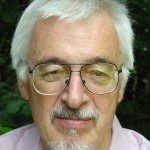Farewell to RPCV Dick Lipez (Ethiopia)
Dick’s husband, Joe Wheaton, and Dick’s two children–Sydney and Zachary–when married to RPCV Hedy Harris (Ethiopia 1964-67), held a memorial on June 19th, to celebrate the life of our RPCV legend. There was music, a pictorial romp, snacks and beverages, all under a tent on the lawn of Dick and Joe’s home in Becket, Massachusetts.
A number of his friends were also asked to speak, and Joe asked me if I would say a few words about Dick’s Peace Corps years. It was surprising to me how many of his family, children and relatives, mentioned his Ethiopian years and when I stood up to address the gathering of about 200 friends and family, I was able to fill in some of the history of his life in Ethiopia as a PCV and later as Peace Corps staff in Washington, D.C..
Here is what I said, Sunday afternoon, on Father’s Day, about Dick and the influence the Peace Corps had on his life.
Dick Lipez (Ethiopia 1962-64)
When he campaigned for president in 1960 John F. Kennedy stood on the steps of the University of Michigan and talked about one big idea he hoped to make good on if he were elected. That idea was for college-graduates and skilled young men and women to lend their talents, for a few years, to less developed countries, in hopes of promoting world peace. That idea—later dubbed the Peace Corps—spoke to a whole generation of idealistic Americans, and Dick Lipez was one of them.
 In fact, Dick was one of the very first to join. In the fall of ’62, at the age of 24, he traveled to Africa with over 300 other volunteers for a two-year tour. He taught secondary school in the village of Debre Marcos in the mountains of northwestern Ethiopia. This village in the Horn of Africa, was as far as one could possibly be from Lock Haven, Pennsylvania, where Dick had grown up, where he graduated from college and where he was a DJ at the local radio station, which happened to be run, and eventually owned, by his father. In other words, he was a kid from comfortable circumstances with a fun job, a young guy who had no pressing need to go 7,000 miles from home to a hard and very different world. But Dick did.
In fact, Dick was one of the very first to join. In the fall of ’62, at the age of 24, he traveled to Africa with over 300 other volunteers for a two-year tour. He taught secondary school in the village of Debre Marcos in the mountains of northwestern Ethiopia. This village in the Horn of Africa, was as far as one could possibly be from Lock Haven, Pennsylvania, where Dick had grown up, where he graduated from college and where he was a DJ at the local radio station, which happened to be run, and eventually owned, by his father. In other words, he was a kid from comfortable circumstances with a fun job, a young guy who had no pressing need to go 7,000 miles from home to a hard and very different world. But Dick did.
In his second year in Ethiopia, he was reassigned to Addis Ababa, to the Shimeles Hable school, which was new and in a very tough neighborhood, and so it needed experienced teachers. Dick did the job. But his commitment went way beyond that of most Volunteers.
At Shimeles Hable, Dick found himself impressed by one of the students in his English class. Worku Sharew was his name, and he was a shepherd, one of eight children of a local farmer. Not easy for a child in that situation to get into school and stay there, but Worku made it happen, and Dick took notice. Years later, Dick and his wife Hedy, who also served as a Volunteer in Ethiopia, brought the boy to Lock Haven, to high school. Dick told me the first thing he taught Worku to do in America was how to tie his shoes. Worku didn’t know, because he had never owned a pair of shoes before.
Then, by chance, Dick met an administrator from St. John’s University, who mentioned that his school, located in Queens, New York, was looking to enroll foreign students. Dick immediately got Worku a scholarship to Saint John’s. Once he got his degree, this son of a poor farmer returned home and spent his career at the Ethiopian Tourist Office—a middle–class, well-paying job that would have been utterly beyond his reach as an uneducated farmer.
Dick changed Worku’s life, and Worku in turn gave his daughter, Betamarium, an even better life. She recently graduated from Smith College, and is now at the Cleveland Clinic, in Ohio, studying to be a brain surgeon. She plans to return to Ethiopia, where there are only about 40 neurosurgeons serving a population of 115 million. As Joe Wheaton told the Berkshire Eagle, “That was the impact one guy had who left town and took an interest in the world outside.”
Of course, Dick was also in it for the adventure. Quoted in a book about the Peace Corps, Dick said: “Whatever we were before, and none of us can quite remember, that’s all gone. Peace Corps life tempers one by its sheer and irresistible intensity. We look forward to coming home, but missing will be the adventure, the thrill that none of us will ever be able to live again with such intensity, such freedom. In Ethiopia, we found a kind of freedom greater than any we could have imagined.”
Not surprisingly, Dick stayed connected to the Peace Corps after his tour ended. Back in Washington D.C., the Peace Corps had established a self–evaluation unit to study its own programs and decide which were working and which weren’t. As an exercise in self-criticism, it was the first of its kind in the federal government and, my guess is, probably the last. As evaluators, the Peace Corps hired well-known journalists and writers, who would fly into Peace Corps countries and take an in-person look at the work being done. Among the very first evaluators were such superstars as James Michener, already famous for his bestsellers Tales from the South Pacific and Hawaii; Calvin Trillin, then a writer at Time magazine who’d later was at The New Yorker; and Fletcher Knebel, who would soon become famous for writing Seven Days in May. They and others like them made the Evaluation Division the most prestigious department in the Peace Corps.
Dick was not famous. He got hired as an evaluator anyway, because of his reputation as a superb Volunteer, his talent as a writer, and also because—well, you know. Whenever you were with Dick there was a lot of smiling and laughing. He was insightful and wise, but always so clever and funny at the same time that you couldn’t resist him. He was someone everyone wanted to be with and work with.
In 1967, Dick left the Peace Corps to direct an anti-poverty program in Pittsfield, Massachusetts. While still an advocate for the forgotten, he also launched his career as an editorial writer and award-winning novelist.
It was all a long way from Lock Haven, but from his earliest days Dick followed his instinct not only to make the world a better place but to be a citizen of many worlds. And he was beloved in all of them.
The Ethiopian culture is much older than ours. And their main language is called Amharic. I’ve never been gifted at languages, so I never learned more than a bit of Amharic. One of those bits is an especially beautiful word, a word that means both hello and goodbye…a greeting and a farewell. It’s a word that all Ethiopia Volunteers will remember forever, and I want to say it now, Tenayistillign.
Tenayistilligan, Dick. From all the Volunteers in Debre Marcos…from Worku and his daughter Betamarium…from Jane Campbell Beaven, the dear friend you first met during Peace Corps Training, and Andrea Wright, an Ethie Volunteer who’s here with us today. And, of course, from me.
Today, Tenayistillign means, we embrace you, Dick. And we also say farewell.
John Coyne

What a beautiful tribute. It’s difficult to write with tears in my eyes. I didn’t know Dick but from your memorial I am so sorry that I did not.
Cynthia, Thank you so much for your comments. You captured my feelings perfectly.
John, Thank you for posting this tribute for Dick Lopez.
John a great tribute! Thanks for sharing. It’s always wonderful to hear about former PCV’s and their contributions to their communities after serving in the PC. I remember when that “self-evaluation” unit was established and how important it was for improving the PC programs and processes. I think Charlie Peters had something to do with starting it, but not sure.
You are right, Gwen, it was Charlie Peters who created the Evaluation Division and hired Dick Lipez. Maureen Carroll. who was with the first group to the Philippines was the first RPCV that Charlie hired.
Thank you John. That’s a fine send off. I Never thought Dick got an adequate enough good bye. I didn’t even know about the student shepherd and his sister but doesn’t surprise me . He was a special soul.
Rusty Rich